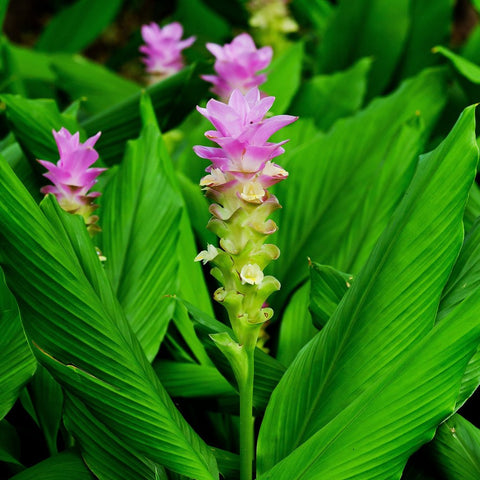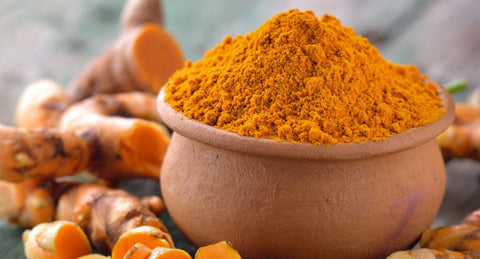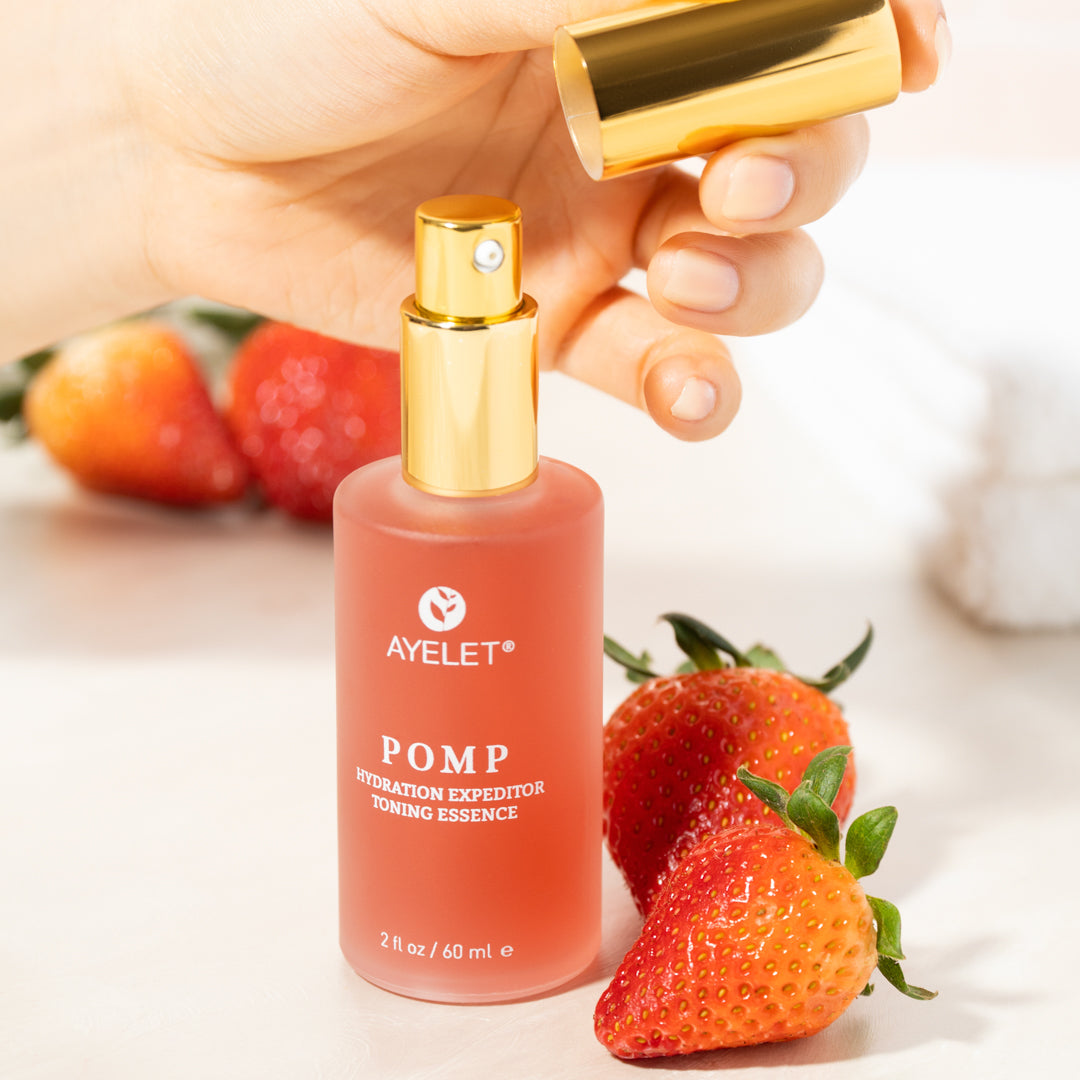
A journey through the radiant world of turmeric – that glorious, golden spice that's been jazzing up curries and tantalizing our taste buds for centuries. But did you know that this humble rhizome, Curcuma longa by its botanical name, is not just a flavor-packed superstar in the kitchen? Oh no, it's also a dazzling magician when it comes to skin care! So, let's dive into the bubbling cauldron of knowledge and explore how turmeric can spell enchantment for your skin.
The plant reaches barely three feet in height and produces both a flower and a rhizome, or stem that is found underground. The rhizome has an appearance similar to ginger; it is a root-like stem that produces the yellow turmeric spice. Though it can now be found throughout the tropics, India has been the largest producer of turmeric since ancient times.

Turmeric more than just a spice - Picture a plant that's only three feet tall, wearing a flower crown and hiding a secret treasure underground. Yes, it's turmeric! Like a culinary superhero, turmeric's rhizome is the real star, giving us that vibrant yellow spice that wakes up our dishes. But wait, there's more – it's been part of India's cultural scene for 4000 years. It's not just a spice; it's a multitasker.

Modern medicine has embraced Turmeric, with over 3,000 publications dealing with the root over the past 25 years. Some of the most recent studies have involved turmeric’s effects on the skin. In addition to scientific evidence, we have other clues as to how turmeric may help us to look younger.
Turmeric Joins the Anti-Aging Party - Now, let's talk about the "Elixir of Youth." Turmeric is loaded with antioxidants, those tiny warriors that battle the villains of aging. Imagine your skin stretching and saying, "Hey, I feel so elastic today!" That's turmeric's handiwork. It whispers to your skin cells, "Hey, time to renew yourselves!" Result? A fresher, more youthful appearance. Those pesky lines and wrinkles? Poof, they're minimized! Now that's aging gracefully.
Protects from sun damage - Guess what? Turmeric isn't just a kitchen star; it's a sun warrior too! Studies have found that applying turmeric extract to sun-damaged skin is like wrapping it in a cozy blanket of protection. Think of it as your skin's own superhero cape, shielding it from UV rays, maintaining that bounce in your skin, and waving goodbye to dark spots. It's like having your own sunscreen guardian, but with a touch of earthy goodness.
Turmeric: The Acne Annihilator - Got blemishes? Say hello to your secret – turmeric essential oil! This antimicrobial powerhouse, It dries up those pesky pimples and says, "No more!" Plus, it's a master at preventing future breakouts. So embrace your new, confident complexion.
Bacteria Beware: Turmeric's in Town - Got a skirmish with small cuts and burns? Meet your match: turmeric, the original antibacterial superhero! It's been warding off bacteria since who-knows-when, ensuring those wounds recover briskly and without any infections. And guess what? It's not just about swift recovery; it's also about preventing those unwanted scars. So, the next time you're in a scuffle with your skin, remember – turmeric's got your back!
Helps reduce acne and acne scarring - Turmeric Root Oil Reduces blemishes and scaring. Being a powerful antimicrobial turmeric essential oil makes an excellent acne fighter
The oil helps to naturally dry out pimples and prevent future breakouts
Anti-Bacterial Properties is one of turmeric’s longest uses is that of an anti-bacterial agent for small cuts and burns. Its anti-bacterial properties can also prevent infection. Turmeric can help reduce localized pain, speed up the healing process, and prevent scarring.
Skin Soother - Ever thought about soothing your skin with a bit of spice? Turmeric's got this under control too. It's like a symphony conductor, telling inflammation to hush while boosting collagen production. Dryness, rashes, irritation, with turmeric in the mix, your skin can sing a harmonious tune of tranquility and luminosity.
Sayonara Hyperpigmentation! - Let's talk about melanin, the artist behind your skin's pigmentation masterpiece. But sometimes, it goes a little Picasso on us, creating age spots and uneven skin tones. Enter curcumin, turmeric's rockstar ingredient. It's like a director, telling melanin where to stand and when to exit stage left. So, if you're dealing with melasma or age spots, turmeric's got the script to push them into the background, how? The curcumin in turmeric seems to block the activation of proteins that increase and regulate melanin production.
In a Nutshell - The scoop on turmeric's skin-loving secrets! this golden treasure is more than just a spice rack superstar. It's your skin's BFF, ready to sprinkle a bit of enchantment and a dash of glow into your daily routine. So, go ahead, let turmeric work its magic, and let your skin shine like the star it is!


